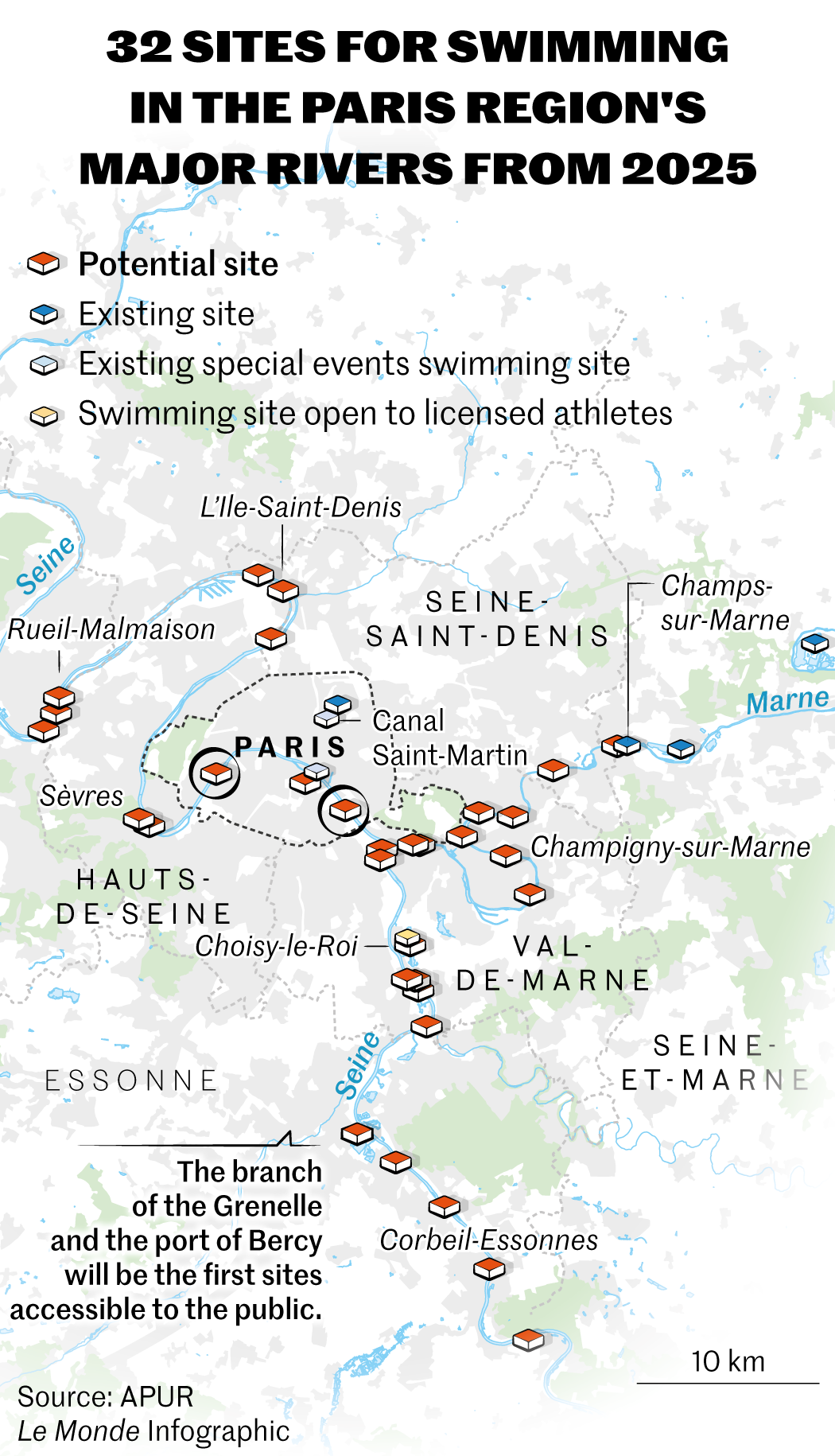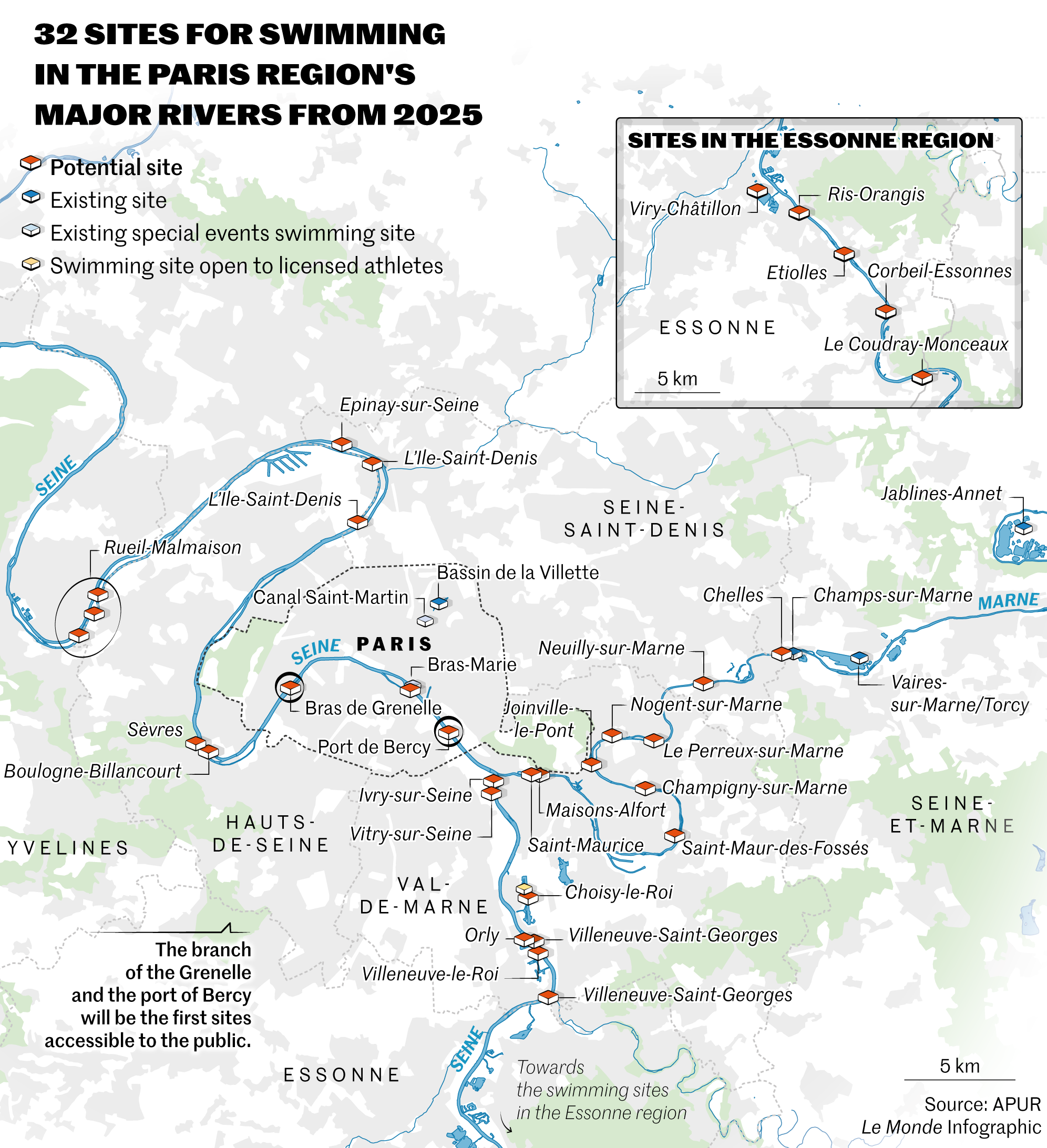

On July 14 at 3pm, as they have every second Sunday in July at the same time for more than 20 years, men and women, some alone and some with their families – some of them even politicians – will take the plunge into Europe's rivers. To hell with the rules, the banners will be out again: "Let's dare to swim in the Marne," "Essonne takes to the water," "I want to be able to swim again." Photos will circulate, and the authorities will be watching. They will go home with the promise of meeting again in a year's time, same day, same time, for the next European "Big Jump".
But by 2025, the mood on the banks of the Seine and Marne rivers in the Paris region could be different. Instead of defying the authorities, these swimsuit-clad activists could be celebrating what they've been campaigning for all these years: the return of swimming to the region's two main rivers.
A meeting was held on March 21 at the regional prefecture, chaired by prefect Marc Guillaume, Paris mayor Anne Hidalgo of the Parti Socialiste and metropolitan area president Patrick Ollier of Les Républicains (conservative). In the presence of numerous politicians, the three drew up the list of 32 sites – including 28 around the Paris metropolitan area – where swimming will soon be permitted again.


The Atelier Parisien d'Urbanisme (Parisian Urbanism Agency, APUR) has drawn up an inventory and studied feasibility. The Pont de Grenelle and Pont de Bercy pools in Paris could be the first to be inaugurated, in 2025. Those in the Saint-Maur-des-Fossés loop, where the Marne is closed to commercial navigation after the port of Bonneuil, should follow shortly afterward. The aptly-named "Rue de la Baignade" (Bather's Street) and "Rue de la Plage" (Beach Street) would then regain their full meaning.
It's been more than a century since people have been swimming in the Seine, following the prefectoral decree of 1923. Sharing the rivers with boats was too dangerous, and the water wasn't exactly clean either. In the Marne, the ban dates back to 1970. This doesn't prevent wild swimming, the organization of rare sporting events – including the Paris Triathlon until 2012, a test event for the Olympics and a high-flying diving competition in 2023 – and the exception in Seine-et-Marne, in Meaux, where residents have been swimming in the Marne since 2007. However, the general public has lost the use of the river.
It was the gamble of wanting to stage the triathlon and open-water swimming events of the Paris 2024 Olympic and Paralympic Games in the Seine that first revived the idea of rehabilitating the bathing area in 2016. Water quality has improved significantly. In 1988, Jacques Chirac, then mayor of Paris, vowed that he would swim in the river to prove it was clean again. But for the tests to be held, major sanitation work was still required. While industrial discharges are the exception, the presence of bacteria is still too high, due to wastewater discharge on days of heavy rainfall.
You have 79.18% of this article left to read. The rest is for subscribers only.
